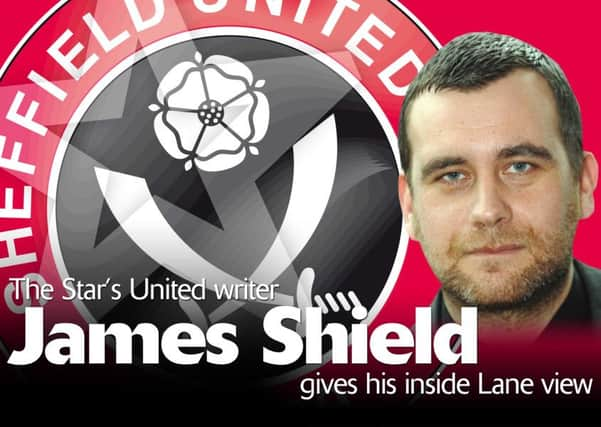James Shield's Sheffield United Column: Science must not take over at the Lane


My companion, for confidentiality purposes we’ll call him ‘Mr X’, was happily reflecting upon a long and largely successful career before his mood turned darker than the claret being sunk.
“I remember the time when a conditioning specialist, or whatever he called himself, claimed a certain individual couldn’t train that morning because his body sugar levels were a little bit low,” Mr X growled. “It was the day before a big game and we needed the points so there’s no way I was having that.”
Advertisement
Hide AdAdvertisement
Hide AdSuffice to say Mr X got his way and said player duly completed the session without, it must be noted, suffering any ill-effects. His presence might have troubled the aspiring Dr Finlay but not the old head at the helm who, not without justification, reasoned a high lactic acid reading would not have persuaded Marco Tardelli to miss the 1982 World Cup final against West Germany. Or, for fearing of labouring the point, if Robert Schlienz could captain Stuttgart after losing an arm then this was a problem a few slices of bread could sort out.
Which brings me neatly, if a little belatedly, to the crux of this column. My concerns that new school ideas are in danger of completely overwhelming the value of things like experience, comradeship and even the good old fashioned hunch.
Nigel Adkins, the Sheffield United manager, makes no attempt to disguise his fascination with some of the supposedly pioneering ideas being peddled by coaches working in other disciplines. Not so long ago, he excitedly told the media about a meeting with former England rugby union coach Stuart Lancaster who was famously (and perhaps fatally) infatuated with trying to break the mould.
Tenth in the table ahead of tomorrow’s visit to Chesterfield, it is fair to say that United’s achievements this season have hardly been spectacular although, on the evidence of recent performances, things might finally be looking-up.
Advertisement
Hide AdAdvertisement
Hide AdI might be wrong but still suspect their improved fortunes coincided with the introduction of a back to basics approach behind the scenes whereby systems were moulded to suit the players at United’s disposal rather than the other way around. Yes, science can be a huge help. Managers, though, sometimes need to pause for thought and remember the impulsive, irrational qualities which probably made them successful in the first place.